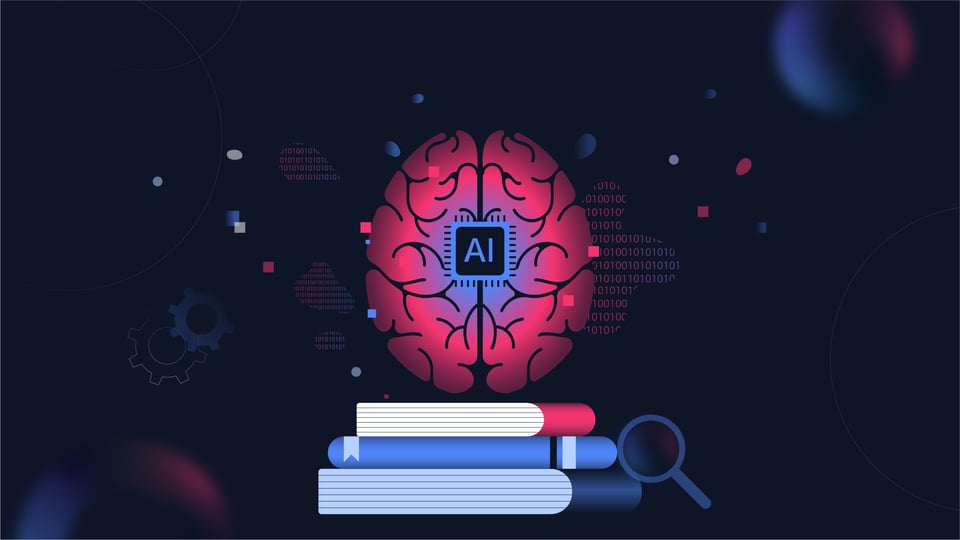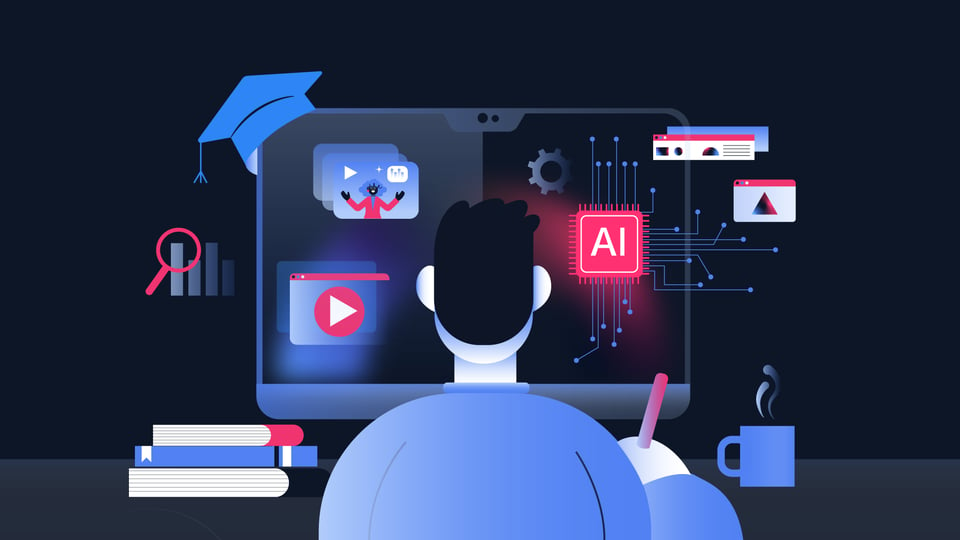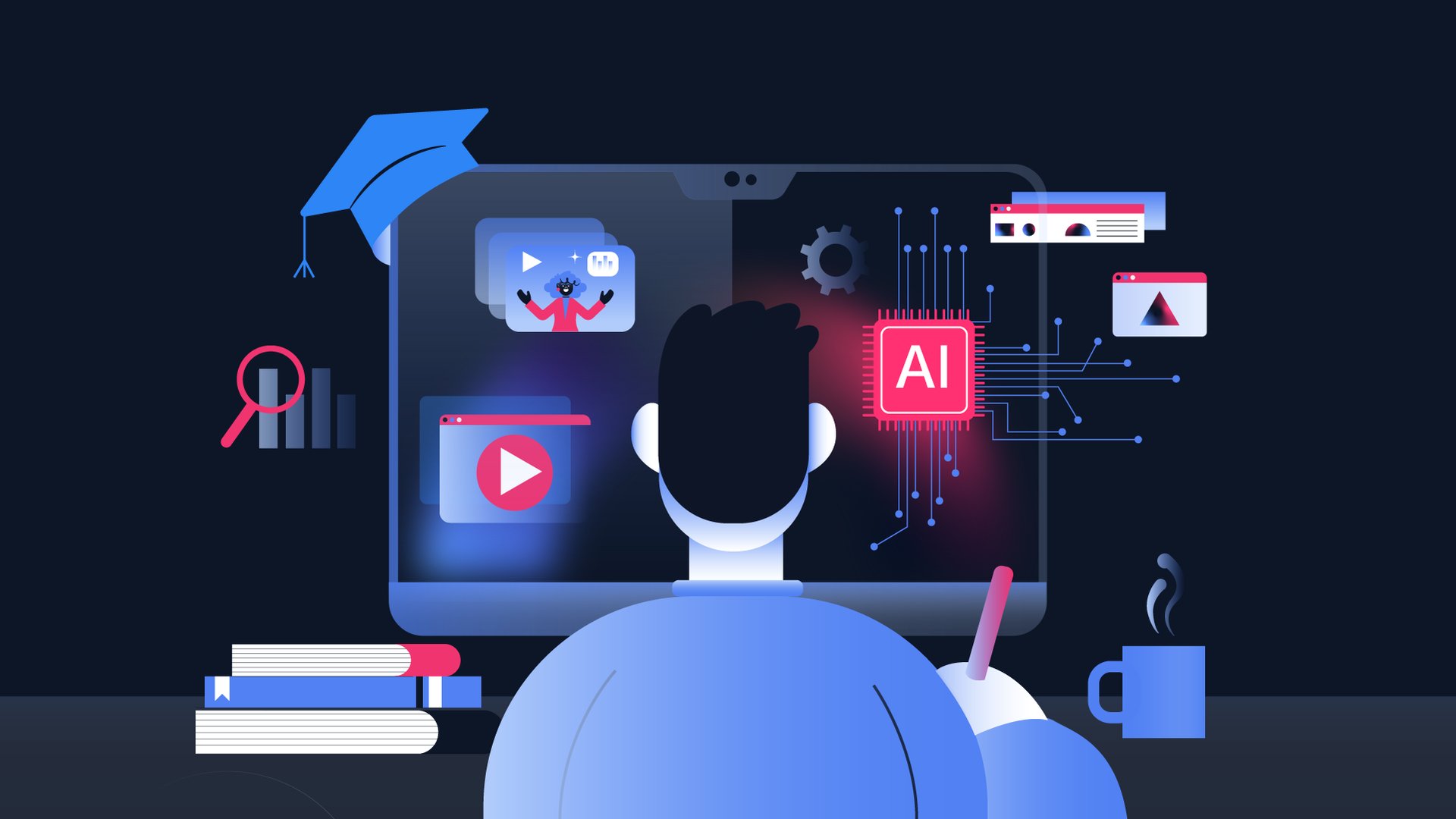AI’s Ouroboros
Buzzwords of artificial intelligence, machine learning, neural networks and deep learning propagate through media channels as the world wakes up to the realities of the state of current technologies. In the world of education, these terms no longer find themselves solely in programming classes. AI has burst on the scene. All educators in schools and universities worldwide know and many are concerned as their students test AIs’ capabilities.
Concern stems in how AI challenges assessment. As it becomes more difficult to know who has produced texts, many in the education field are certainly wondering if essay writing and the take-home assignment are relics of a pre-ChatGPT era. Perhaps, but perhaps not. The promise of AI in plagiarism detection tools could quell fears, but it is important to remember there is a digital arms race afoot where newer versions of ChatGPT and similar AIs will undoubtedly continue to blur the line between machines and humans. For educators in the classroom, there is no time to wait as the serpent of AI devours itself before their eyes. They must escape this ouroboros and reconsider the purpose of assessment - the real reason for concern.
Dependent on Assessment
Assessment is, and will always be, part of the educational process. Educators must measure what students know to identify strengths and weaknesses in a classroom. Assessment provides the pedagogical map and compass. It indicates strategies that drive learning further, yet assessment is twofold.
Wiliam 2011 defines the two sides of assessment where one is concrete and the other more abstract in its nature. The concrete side of assessment deals with the purpose for which it is carried out - accountability and performance indicators that are more commonly known as “grades.” The other, more abstract, aspect of assessment is its function - to promote student learning.
Educators walk the tightrope between these two juxtaposed sides of assessment. On the one hand, their goal is to foster learning in the students they teach, and on the other, they find themselves in a world of metrics. The pressure placed on educators to maintain balance can be enormous as often their educational institutions are measured by government and international agencies based upon quantified benchmarks.
It is apparent why the discussion about AI in education finds itself dealing with plagiarism and cheating. Accessibility and prevalence of AI tools like ChatGPT challenge the performance indicator element of assessment. This can be intimidating in educational settings that might hint at the prioritization of grading over learning. This is often where educators are left to their own devices in an effort to return assessments to their equilibrium.
Want to learn more? Get in touch:
Read also

Educators of tomorrow from the Technologies of today
The swing of the pendulum The recent pandemic rapidly pushed teaching and classrooms into the digital and filled it with online hand-ins, digital presentations, and online assessments in a way that...
Read moreHave your cake and eat it too
It is no secret that the types of assessments that ChatGPT can fool most easily are those that have been staples in the classroom. Despite this, written exams, quizzes and homework assignments will not go the way of the dinosaur, but will evolve in kind. Educators need not be alarmist, only adaptive. The burning question is “what will it take to adapt?”
Adaptation means change. Change means time, resources and energy. All three are hot commodities in an educational system. If AI has placed challenges upon these types of assessment methods, how, then, can educators overcome them without reinventing their entire pedagogical approach? Answers may lie in embracing these new technologies and laying discussions of plagiarism by the wayside.
The utilization of tools like ChatGPT for reflection and introspection during a writing process can aid in achieving assessment for learning. Students could improve skills with what should be understood as personalized learning technology. This is not to say that all assessment scenarios should go unchecked. Rather, it is up to the educator to adapt and design methods that match the needs of their learning environment. They might accomplish this by altering pedagogy through the variation of assessment strategies, moderating access to digital resources on student computers with a tool like Digiexam’s proprietary device lockdown technology, and educating students about the use of AI in their learning process. Doing so can provide frameworks that discourage or prevent plagiarism and cheating whilst fulfilling the function of assessment and purpose for which it is carried out. In such environments, educators truly can have their cake and eat it too.
Learn more
Sign up for our panel discussion (in Swedish)


